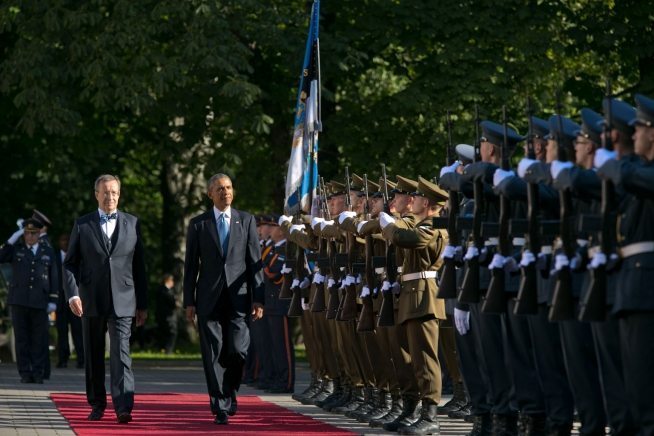When President Obama visited Estonia last week to deliver a warning to Russia, he also drew the spotlight to one of the most connected countries in the world. Estonia was freed from Soviet rule in 1991 and the tiny Baltic country of 1.3 million immediately embraced Internet and communications technology, leaping ahead of many larger and more advanced nations.
Today, citizens of the country that bills itself as “E-Estonia” can do almost anything online from voting and paying taxes to accessing banking and health care systems — a fact that Obama did not fail to notice.
“I should have called the Estonians when we were setting up our health care website,” Obama joked during a Sept. 3 press conference in Tallinn.
Estonia is not only an online country but a highly mobile one. In fact, the number of mobile phone contracts in Estonia outnumbers its people with 139 contracts for every 100 Estonians. It was also the first country in Europe to achieve nationwide LTE coverage. Now, all three of Estonia’s major mobile operators — EMT, Tele2 and Elisa — have plans to roll out LTE-Advanced this year starting with the capital Tallinn.
The country’s investment in technology helped create the environment that gave birth to Skype, which has three Estonian co-founders. Even after Microsoft’s purchase of Skype in 2011 a sizable portion of the company’s development team is still located in Estonia.
Sten Tamkivi, the former general manager of Skype, believes that other countries including the United States could learn a lot from the Estonian approach to technology. In a January article for The Atlantic, Tamkivi wrote that “Estonia is a start-up country — not just by life stage, but by mindset.”
Take e-voting for instance: in 2005 Estonia was the first country to let citizens vote over the Internet nationwide. Now about a quarter of the population votes this way. And as Capgemini’s Fernado Alverez pointed out recently, nations can encourage more voter engagement by following Estonia’s lead in allowing voting over mobile devices. Since 2005, the number of Estonian voters using that method to vote has risen from 9,000 to 133,000.
Tamkivi defines the Estonian mindset as a willingness to get infrastructure right and continually re-invent it. Estonia certainly does have a lot of experience with re-invention. After the Iron Curtain fell, the former Eastern block country reinvented itself as a tech-savvy Western-facing country, joining both the European Union and NATO in 2004.
Then, in 2007, after all the work Estonian agencies and businesses did to put their systems online, a massive series of cyber attacks hit the country overrunning websites of Estonian banks, agencies and media outlets. At the time, Estonia’s foreign minister accused the Russian government of direct involvement. Estonia rebounded from the incident, invested in cyber-security and is now home to a NATO cyber defense center.
Given Estonia’s history and its online focus, it’s not surprising that following Obama’s recent visit, Estonian president Toomas Hendrik Ilves called cyber security “a domain of warfare in the same way as land, sea and air.”
Like many politicians in Eastern Europe, Ilves fears that the current crisis with Russia and the Ukraine will spread in the region and threaten his country’s security. Unfortunately, recent reports that an Estonian official was arrested by Russia in a cross border attack shows that those fears are not unfounded. Estonia’s small size belies its significance. Should the country fall prey to Russian aggression again, it’s unlikely that Estonia’s culture of online freedom and experimentation would survive, and the West would not only lose an ally but a source of inspiration.
Looking for more news and perspectives on Europe? See RCR Wireless’ EMEA coverage, and follow me on Twitter.

